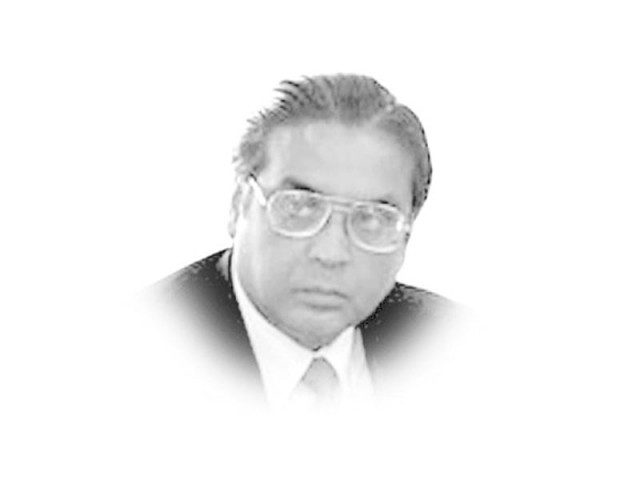Economist estimates Washington's war against terror cost Pakistan $252bn
Dr Hafiz Pasha, in his new book, estimates Pakistan suffered $252b loss in war on terror

Hafiz Pasha
The $252 billion price has been estimated by economist Dr Hafiz Pasha in his book titled 'Growth and Inequality –Agenda for Reforms', which was rolled out on Tuesday in the presence of three cabinet ministers including Finance Minister Asad Umar.
The cost is twice the amount that the Ministry of Finance had earlier published in Economic Survey of Pakistan. The $252 billion loss is equal to 93 per cent of the total size of the country's economy.
"The estimated total cost of terrorism to the economy of Pakistan up to 2017-18 is $251.8 billion", reads the book, sponsored by German Institute Friedrich Ebert Stiftung (FES).
The book noted that the aggregate indirect cost due to war against terrorism was $179.1 billion, while the direct cost was $72.7 billion.
In comparison to this, the total external assistance received from Washington after Pakistan joined the war in Afghanistan is estimated at $33 billion.
The bulk of $33 billion, over two-thirds, has been security assistance, mostly in the form of reimbursement from the Coalition Support Fund.
The $252 billion cost is almost eight times the assistance received from the Washington.
The book also underlines that the finance ministry's methodology to work out the cost of war against terrorism is "defective".
The finance ministry had estimated nearly $127 billion total cost to economy.
The author of the book noted that the largest cost item is the reduction in tax collection.
In actuality, the cost is the reduction in the overall tax base and not just in revenues.
The book also underlines that over 70,000 people have been killed in Pakistan due to war against terrorism.
It is estimated that over 35 per cent are civilians with 11 per cent being security personnel.
The remainders, 54 per cent, are terrorists. The highest incidence of acts of terrorism had been in erstwhile Federally Administered Tribal Areas, followed by Khyber-Pakhtunkhwa and Balochistan.
There was a large-scale influx of three million refugees into Pakistan after the 9/11 terrorist attacks.
From 2002 onwards the frequency of suicide attacks and bombing increased rapidly, reaching a peak of 76 in 2008 and receded gradually thereafter to 43 in 2013.
Direct Cost
Pasha estimates the direct cost on account of higher expenditure on security, both public and private, damage to infrastructure and property and other costs.
Pakistan's participation in the war in Afghanistan required an increase in budget allocations for security by the federal government.
Prior to 9/11, there had been modest growth annually in real defense expenditure of less than one per cent.
Thereafter, the growth rate rose to 1.3 per cent initially, then to 3.1 per cent and in recent years to as high as 6.1 per cent.
The cumulative increase in defense spending from 2001-02 to 2017-18 is estimated at $38.5 billion.
The expenditures on maintaining law and order also grew from 1.5 per cent annually prior to 9/11 to now 7.8 per cent.
The cumulative extra expenditure under this head is estimated at $18 billion.
Similarly, the increased expenditure on private security are estimated at $7.7 billion.



1733130350-0/Untitled-design-(76)1733130350-0-208x130.webp)















COMMENTS
Comments are moderated and generally will be posted if they are on-topic and not abusive.
For more information, please see our Comments FAQ